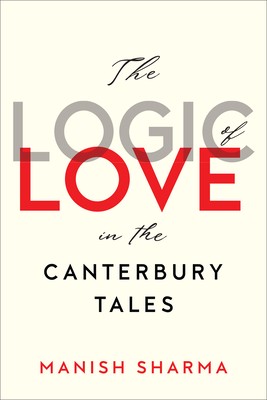
- We will send in 10–14 business days.
- Author: Manish Sharma
- Publisher: University of Toronto Press
- ISBN-10: 1487509030
- ISBN-13: 9781487509033
- Format: 15.5 x 23.1 x 3.1 cm, kieti viršeliai
- Language: English
- SAVE -10% with code: EXTRA
Reviews
Description
The Logic of Love in the Canterbury Tales argues that Geoffrey Chaucer's magnum opus draws inventively on the resources of late medieval logic to conceive of love as an insoluble. Philosophers of the fourteenth century expended great effort to solve insolubilia, like the notorious Liar paradox, in order to decide upon their truth or falsity. For Chaucer, however, and in keeping with Christ's admonition from the Sermon on the Mount, the lover does not judge - does not decide on - the beloved.
Through a series of detailed and rigorously non-judgmental readings, Manish Sharma provides new insight into each of the prologues and tales and intervenes into scholarly debates about their collective import. In so doing, The Logic of Love in the Canterbury Tales deploys Chaucer's understanding of charity to consider the limitations of modern critical approaches to the Canterbury Tales, including deconstruction, psychoanalysis, and gender theory. In the course of the analysis, Sharma shows not only how love and medieval philosophy together inform Chaucerian composition, but also how Chaucer could serve as a resource for contemporary theoretical reflections on love and ethics.
EXTRA 10 % discount with code: EXTRA
The promotion ends in 22d.21:11:13
The discount code is valid when purchasing from 10 €. Discounts do not stack.
- Author: Manish Sharma
- Publisher: University of Toronto Press
- ISBN-10: 1487509030
- ISBN-13: 9781487509033
- Format: 15.5 x 23.1 x 3.1 cm, kieti viršeliai
- Language: English English
The Logic of Love in the Canterbury Tales argues that Geoffrey Chaucer's magnum opus draws inventively on the resources of late medieval logic to conceive of love as an insoluble. Philosophers of the fourteenth century expended great effort to solve insolubilia, like the notorious Liar paradox, in order to decide upon their truth or falsity. For Chaucer, however, and in keeping with Christ's admonition from the Sermon on the Mount, the lover does not judge - does not decide on - the beloved.
Through a series of detailed and rigorously non-judgmental readings, Manish Sharma provides new insight into each of the prologues and tales and intervenes into scholarly debates about their collective import. In so doing, The Logic of Love in the Canterbury Tales deploys Chaucer's understanding of charity to consider the limitations of modern critical approaches to the Canterbury Tales, including deconstruction, psychoanalysis, and gender theory. In the course of the analysis, Sharma shows not only how love and medieval philosophy together inform Chaucerian composition, but also how Chaucer could serve as a resource for contemporary theoretical reflections on love and ethics.


Reviews